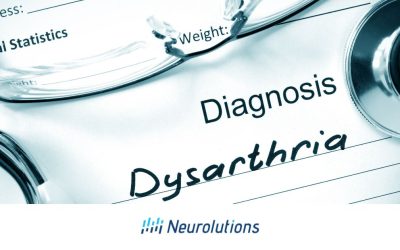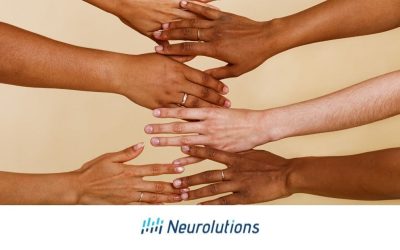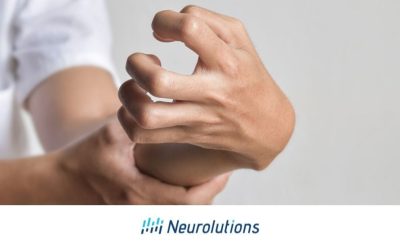While strokes certainly damage functions of the brain and body, the negative impact strokes have on a survivor’s lifestyle and hopes for the future is often the most devastating. Anyone who has experienced a stroke can attest that the event, as well as the aftermath, can be a life-changing experience. Once the immediate crisis of being in the hospital has passed, the bumpy road along the path to recovery can cause significant distress to the survivor’s mindset and level of confidence as they try to adjust to a “new normal.”
This article discusses how to “rediscover yourself” after a stroke by better understanding the emotional turmoil that you may be going through and highlighting ways to gain back your confidence.
Emotional Turmoil After Stroke
Emotional turmoil, such as feelings of sadness, anger, stress, despair, anxiety, depression, worry, hopelessness, and fear, is highly prevalent after a stroke. This is not only due to large life changes brought on by stroke, but also chemical changes in the brain due to the stroke itself.
The primary reason is how stroke impacts the brain, and our brain controls our emotions. In turn, our emotions impact our behaviors and the choices we make. Therefore, our physical health and emotional health are very interconnected.
It is also true that specific areas of the brain damaged by a stroke can make a person more susceptible to emotional outbursts, crying spells (also called “emotional lability”), and uncharacteristic personality changes.
Post-stroke depression (PSD) is the most prevalent category of emotional turmoil after a stroke. (1) Clinical studies have reported incidences of 18%-61% of stroke survivors experiencing depression, with this statistic most likely being far under the true incidence values. (2, 3) Depression is a serious complication because it is considered the strongest predictor of poor quality of life among stroke survivors. (4)
No matter the description or severity of the emotional turmoil experienced after a stroke, daily mental battles are known to slow down recovery.
While there is no one-size-fits-all answer for everyone, the path to recovery often offers a combination of common sense, evidence, hope, and empowerment.
Rediscovering Yourself After Stroke
“I just want my life back,” says every survivor of a stroke.
While strokes that cause more major physical or cognitive impairments can turn an individual’s life upside down, even “small” strokes upset well-being and can cause daily problems that interrupt normal functioning.
Renowned brain and trauma experts advocate that healing after any kind of trauma and adversity must begin with a shift to asking “What happened to you?” rather than “What’s wrong with you?” (5)
If you or your loved one fall into either of these categories (or somewhere in between), take a moment to acknowledge that “something bad happened to you.” This can be especially helpful if you are feeling blame, shame, or embarrassment. When the loop in your mind continually says, “I caused this,” or “What’s wrong with me,” it lessens confidence and therefore hinders your ability to reclaim your power.
5 Tips on How You Can Regain Your Confidence and Love Yourself Again After Surviving A Stroke
Traumatic events like a stroke can often alter the brain’s circuitry to be more vulnerable to prolonged and extreme stress and lead to depression. It is important to make a conscious effort to provide good self-care after surviving a stroke. If you are caring for someone who survived a stroke, try your best to offer understanding and encouragement throughout their recovery journey. Caregiving can be very taxing at times, and it is important to recognize if the caregiver is also experiencing changes in their life or emotions.
The following tips may help you develop resilience and coping strategies to regain your confidence and love yourself again after surviving a stroke:
Tip 1: Start a Recovery Calendar
Keeping a calendar that provides special attention to efforts you are making to take more steps forward in your recovery serves several benefits (6):
- Helps you stay on schedule
- Keeps track of your successes and failures
- Helps you grasp what is working and what is not working
- Helps measure progress over time
All of these are essential to defining and achieving goals. It also helps you set new goals. When you look back at what you have accomplished, you will see how far you have come and build your confidence.
Make your Recovery Calendar a large grid with rows and columns (all dated). Leave room to write measurable statistics of what you want to achieve, and check the box when it is completed. Increase the difficulty little by little. Remember- you need to challenge yourself to change! Examples of what to include may be walking, resistance training, specific daily tasks, stretching, or metrics that you and your doctor or monitoring (e.g. blood pressure, pulse, glucose).
Tip 2: Try, Try Again!
Even after a stroke, the brain can make physical changes and form new neural connections when stimulated through practice and experience. The brain changes in a “use-dependent way” when the experience is specific, meaningful, and rehearsed over and over again. For example, just as an athlete, a musician, or an artist must practice with high repetitions to refine their skills, stroke survivors alike must try a lot of times-even if it means making some errors.
Tip 3: Restore Your Hobbies, Roles, and Routines – Or Find New Ones
A routine with a structured balance of consistency and variety is key. Plan out a baseline routine for the activities that make up your day. Be sure to include a mixture of rest and relaxation with tasks that are considered alerting and more stimulating. When possible, center your day around meaningful activities that keep your mind and body active. Even mundane house tasks that need to be accomplished can provide pride and a sense of productivity. Consider new activities or hobbies that you never thought to pursue or never felt like you had the time to complete.
Tip 4: Socializing and Friendships Are Important for Your Health
After the initial large gatherings of friends and family in the hospital, many stroke survivors later face the challenge of withdrawal or complete removal from social circles and friendships. Sometimes this is because friends and family may not know how to relate. Other times it is because they get busy with their lives and it becomes harder to make special trips. Although it is hard not to, try your best to not take it personally.
Because loneliness and isolation are predictors of mortality (7), it is important to make extra effort to keep in close contact with others that are part of your tribe. This may mean directly reaching out to friends and family to request special visits. It also might mean saying “yes” to a social event even if you feel uncomfortable with the idea of how you might appear to others since your stroke. You can also look into expanding your social circle to those in stroke support groups as they can closely relate to similar issues that you are going through and offer first-hand guidance and encouragement.
Tip 5: Practice Thoughts Centered on Gratitude and Appreciation.
While this might sound absurd at first given that you have had a stroke, practicing thoughts of gratitude and appreciation is considered an evidence-based mind-management technique. Yes, your health and function may hang in jeopardy, but there are things all around you for which to be grateful.
Start simple. Be grateful or appreciative for your warm cup of coffee, the sun peeking out the clouds, your affectionate pet giving you a nuzzle, a call from a friend, taking more steps than the day before, etc.
Tsgoyna Tanzman, M.A./CCC SLP and author of Hope after Stroke states: “Whatever we focus upon, we get more of….As we begin to stack up small appreciations, we warm our inner ovens and feel better. When we feel better, we take action from a more empowered and purposeful state of being. We become more resourceful and that leads us to better results.” (9)
5 Tips to Focus on Positive Mental Health & Rediscovering Yourself After Stroke
Paying attention to how you feel helps you connect your behaviors with your thoughts. What is your inner-narrator saying to you? If you sense that your feelings and self-talk are not pointing you in the right direction to get your life back, try some of these tips that can help you out of common pitfalls experienced by stroke survivors.
Tip 1: Focus On Your Progress, Not Your Prognosis.
All too often stroke survivors and loved ones are provided either misinformation about their potential or they are given bleak recovery predictions based on the best available evidence (albeit outdated). Remember that every brain is different, every stroke is different, and every recovery is different. Pay attention to the little improvements that happen over time, and you will soon be inspired to blow any naysayers out of the water with your progress!
Tip 2: Focus On Your Gain, Not Your Gap.
In the best-selling book, The Gap and the Gain, Dr. Benjamin Hardy and best-selling author Dan Sullivan explain that “the way to measure your progress is backward against where you started, not against your ideal.” (9) This one simple concept can help you stop comparing yourself to others and what is missing from your life. They do not provide advice to give up your goals but instead, try living life in a self-determined way in which you can look back at all you have accomplished. “There is a quiet confidence that comes from running your own race, from no longer measuring or comparing yourself to others,” said Hardy and Sullivan. This is important for stroke survivors because comparison comes from looking at those around them who have not had a stroke, but the one that is most often compared is their “former self.”
Tip 3: Focus on What You Can Control, Not What You Cannot.
Unfortunately, the actual event of the stroke cannot be reversed. There is also no magic wand that can make things exactly the way it was before the stroke. However, there is still a lot that a stroke survivor and their loved ones have control over after a stroke. The number one thing everyone has control over is their mindset. Although it is not easy, a mindset that has cultivated to be self-determined and full of hope grows helps the process of boosting confidence and self-discovery for a more fulfilled life.
Tip 4: Focus First on Your Who, Not on Your How.
Far too many stroke survivors pay a heavy price when they do not ask for help or when they do not find a support group of capable “Whos” to help them along their recovery journey. When first you ask “Who?” rather than “How?” you no longer have the entire burden of doing it on your own. Build an A-team of rehabilitation specialists, counselors, physicians, and friends and family who support your growth and show you how to get there.
Tip 5: Focus On Your Comeback, Not Your Setback.
Resilience can be developed by tapping into the strength within you. While the stroke may have caused a setback to your health, dreams, and goals, it does not have to be the end of the road. Visualize your comeback. Set your daily environment up for success to be as independent and safe as possible during your recovery.
To help form an image of what your comeback looks like, 1- focus on all the components of Tips 1-4 (Progress, Gain, Who, Big Picture), and 2- look for opportunities to rebuild your life.
References
- Kim P, Warren S, Madill H, Hadley M. Quality of life of stroke survivors. Qual Life Res. 1999;8:293–301.
- House A. Mood disorders in the first year after stroke. Nurs Times. 1987;2:211–21. [Google Scholar]
- Kong KH, Yang SY. Health-related quality of life among chronic stroke survivors attending a rehabilitation clinic. Singapore Med J. 2006;47:213–8
- Srivastava, A., Taly, A. B., Gupta, A., & Murali, T. (2010). Post-stroke depression: prevalence and relationship with disability in chronic stroke survivors. Annals of Indian Academy of Neurology, 13(2), 123–127. https://doi.org/10.4103/0972-2327.64643
- Perry, B & Winfrey, O. (2021). What Happened to You? Flatiron Books.
- Levine, P. (2018) Stronger after Stroke: Your Roadmap to Recovery, 3rd Edition. Demos Health.
- Pantell M, Rehkopf D, Jutte D, Syme SL, Balmes J, Adler N. Social isolation: a predictor of mortality comparable to traditional clinical risk factors. Am J Public Health. 2013 Nov;103(11):2056-62. DOI: 10.2105/AJPH.2013.301261. Epub 2013 Sep 12. PMID: 24028260; PMCID: PMC3871270.
- Tanzman, T. (2018). Hope after Stroke. Xetrov.
- Sullivan, D. & Hardy, B. (2021) The Gap and the Gain. Hay House, Inc.



